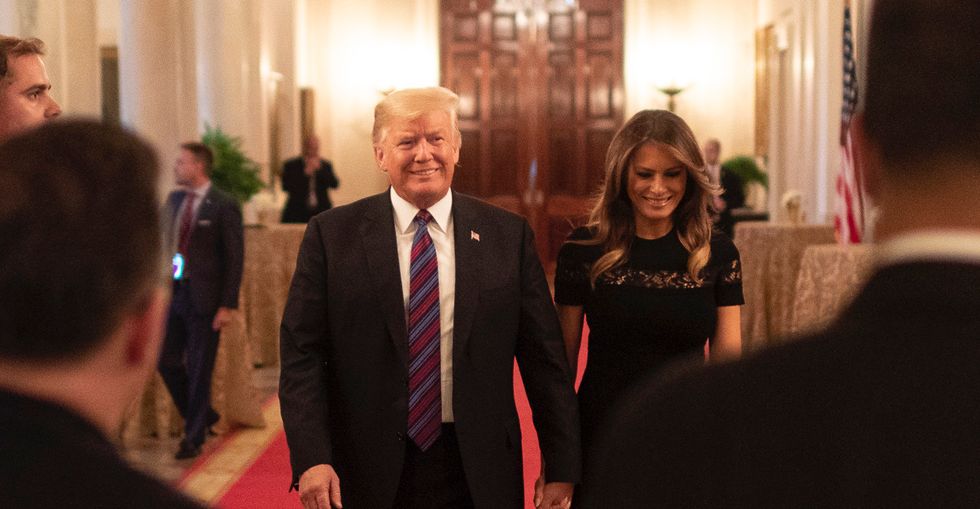Although President Donald Trump was raised Presbyterian and has never been a Christian fundamentalist, far-right white evangelical Protestants have been a key part of his base. Trump obviously realizes that if the 2020 presidential race is close, he is going to need a heavy evangelical turnout — and journalist Rashaan Ayesh, in Axios, outlines the steps he is taking to keep his far-right evangelical supporters energized.
Trump was recently the target of a scathing op-ed by a white evangelical fundamentalist: Christianity Today Editor-In-Chief Mark Galli, who is retiring in January. Regardless, he is generally quite popular among white evangelicals, some of whom are furious with Galli for that op-ed. A group of almost 200 evangelicals signed a letter condemning the op-ed and voicing their support for Trump. And according to Ayesh, Trump is doing everything he can to keep it that way.
Last week, Ayesh notes, Trump’s 2020 presidential campaign announced that he will be present on Jan. 3 for an event in Miami celebrating the launch of the coalition Evangelicals for Trump. And on Christmas Eve, Trump and First Lady Melania Trump attended holiday services at a fundamentalist church in West Palm Beach, Florida — not the Episcopal church they were married in.
Ayesh cites some Pew Research Center data to illustrate Trump’s popularity among white evangelicals: according to Pew, about 81% of evangelicals in the U.S. voted for Trump in 2016. In contrast, Jews and Latino Catholics were, Pew reported, “strong” supporters of Democratic presidential nominee Hillary Clinton. It should also be noted that Mainline Protestants such as Presbyterians, Episcopalians and Lutherans represent a non-fundamentalist form of Protestant Christianity, and that Trump had a non-evangelical upbringing; so his decision to court evangelicals in 2016 was — like many things Trump does — motivated by self-interest. Trump may not embrace evangelicals’ view of the world, but he wants their votes.


